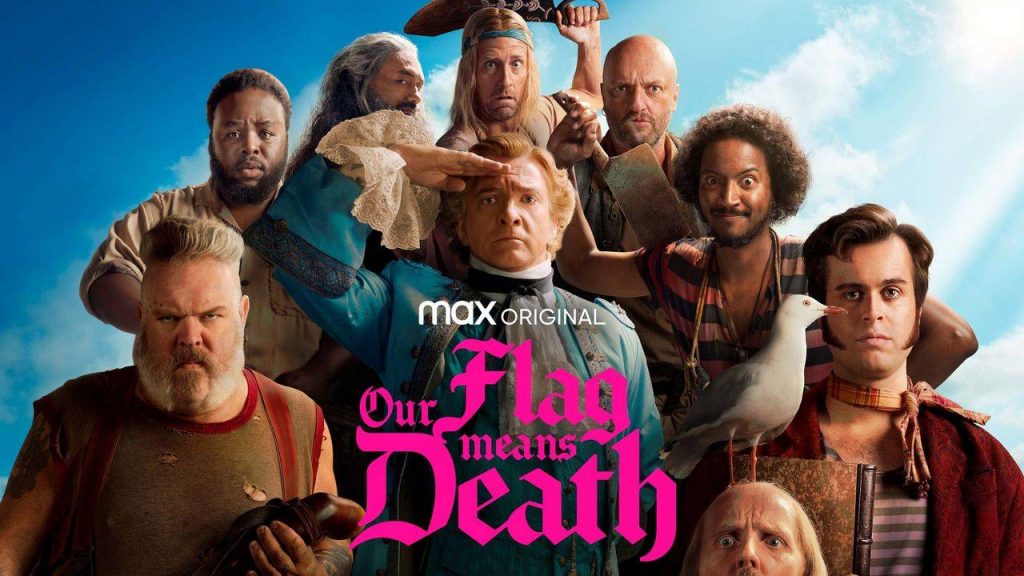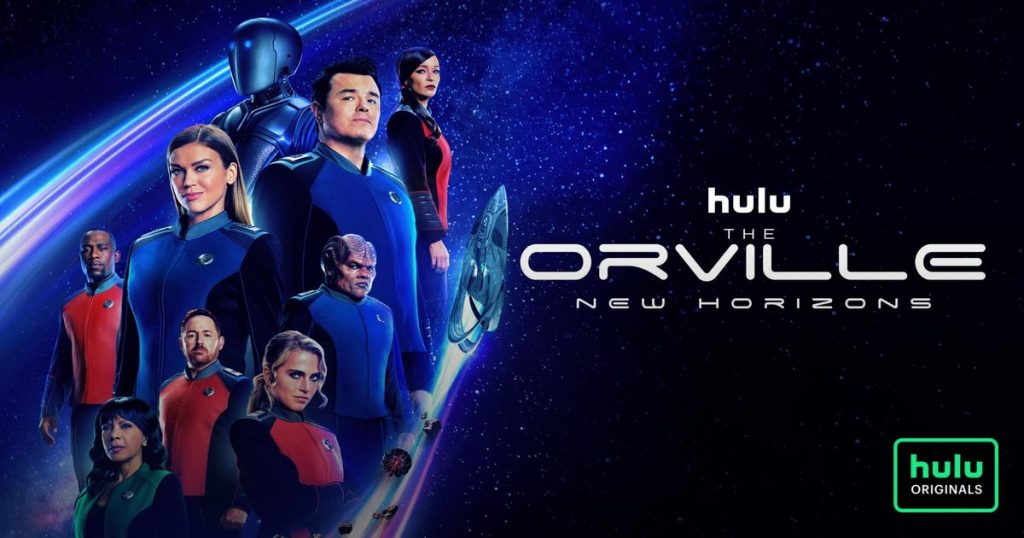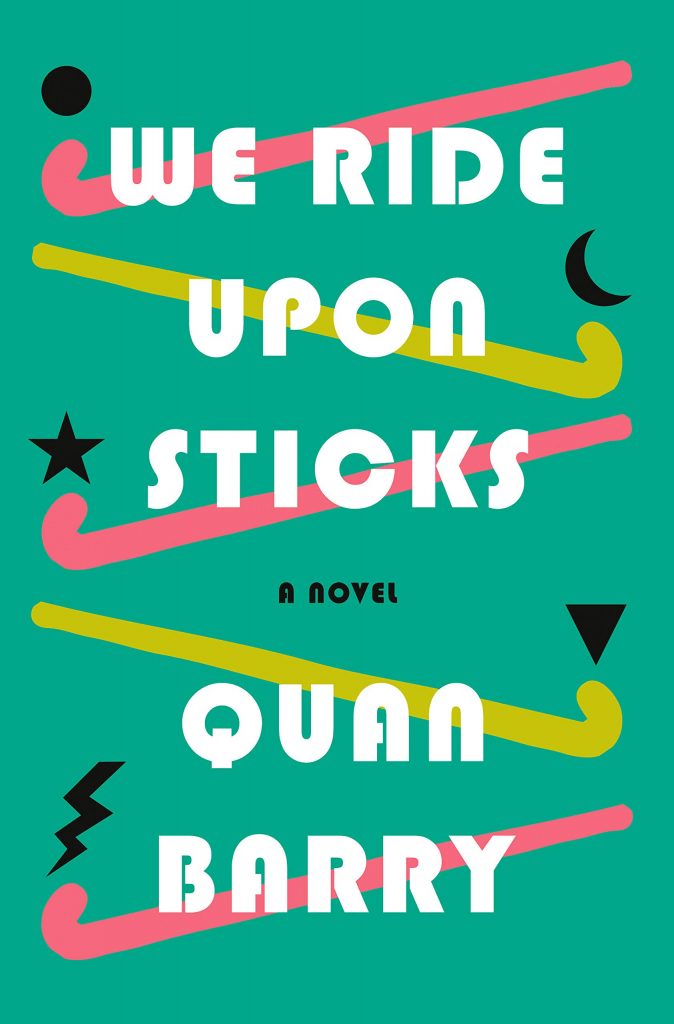Despite lacking an official definition, Comfort Media and the act of indulging in it is anything but a new trend. Repeatedly consuming a piece of material to the point where its context feels second-nature is something that audiences have been doing for years. The calming effect that comes from consistently revisiting the same material is known as experiential control, according to a study performed by author Emily Bashforth and Dr. Sarah Jarvis MBE. Removing the element of surprise by already knowing how something is going to end alleviates hormones like adrenaline and cortisol that the brain releases during times of heightened or prolonged stress, while also reinforcing the positive emotions that are produced from immersing yourself in trusted material. At its core, Comfort Media offers a sense of escapism that is unique to each piece of media consumed. Whether it’s viewer favorites like The Office, Gossip Girl, Glee, or any other staples, Comfort Media is there for its audience in ways newer releases don’t have the time to offer. With experiential control tactics like immersing oneself in their chosen Comfort Media being so popular amongst people who struggle with anxiety, these methods have been highly recommended for those recovering from trauma.
I was diagnosed with PTSD when I was sixteen years old. At the time, I never thought to do my own research on the illness I had developed. At sixteen, I was so consumed with cultivating a safe environment for myself after my assault that I never took the time to process what was happening with me. I found comfort in my rotating cast of therapists and psychiatrists assuring me that this was much more common than I would think. I had developed my talking points and knew the best descriptors to use when talking about my “progress” and would go about the rest of my day. It wasn’t until I went through a more recent traumatic event that I realized that I wasn’t working towards recovering – I was placating myself so I could go about my business as usual. Something that was never disclosed to me with this diagnosis was how this illness evolves over time, or how easily a person can be re-diagnosed when new traumatic events are introduced. According to the National Center for PTSD, roughly 8 out of 100 people will develop PTSD in their lifetime – and the reintroduction of traumatic events, or additional traumas incurred over time, for someone who developed PTSD at a young age puts them at risk of developing Complex PTSD.

On September 15th, 2021, I almost died in an Ochsner Baptist triage room because of complications suffered during an incomplete miscarraige. I lost the pregnancy while we were driving back from a hurricane evacuation a few days prior. I didn’t know what it was when I first felt it happening, but the severity of my symptoms should have tipped us off to the fact that this wasn’t a period. When I finally took myself to the ER after continuously vomiting at my office four days later, I was told I was pregnant three full sentences after the Oschner Baptist Emergency Room doctor told me that my miscarriage didn’t naturally pass through my body. They told me I was barreling towards sepsis – I shouldn’t have been able to hold out as long as I did and that corrective action needed to be taken immediately.
I was discharged seven hours after being admitted. Once the emergency dilation and curettage had ended and they had pumped me full of enough anti-anxiety medication to get me to stop crying, they asked if I could call my emergency contact to come get me. I told them he broke up with me the night before. In a moment of pure, unadulterated feminism, the same nurses who denied me pain medication but dosed me so I wouldn’t cry so much told me that I don’t need him and that they weren’t going to make me call him. I stumbled out of the Ochsner Baptist Emergency Room, thanked every higher power I could name that no one snatched me up while I drug myself to my car, and drove home without further incident.
From the moment I made it home I knew that this was something I couldn’t get myself through. When I called my former partner to tell him what had happened, the first thing I did was apologize – like I had unknowingly taken something from him. Neither of us knew what had been brewing for the past seven weeks but it was my fault that it was gone (and that it almost took me down in its descent). I remember him holding me a couple hours later, disputing my claims of being less of a woman for not being able to hold out until we could make a decision about what would have been, undoubtedly, the weirdest kid possible. Five days of bedrest, three weeks of continuous bleeding, and months of residual health issues went by and I still hadn’t recovered from what had happened. Physically healing didn’t help the irreparably fucked relationship I have with my own body after this kind of trauma. And, try as I might, this was a stress that even Glee couldn’t make me forget about.
So, I took to the new releases. I scoured streaming services for the past year and cultivated a list of new media that spoke to parts of me that I hadn’t taken the time to learn about. Here’s my highest recommendations for anyone finding themselves in a similar boat that I’ve been in and is needing to shut their brain off for a bit, with the added bonus of immersing yourself in an inviting new world:
Gossip Girl (2021)

Gossip Girl (2021) is the evolution of one of my all-time favorite comfort shows. This reboot pulls me back into the world of New York’s social elite while also offering an updated perspective. Best if used on the first day of your recovery – ideally when your partner leaves to pick up your prescriptions after telling you he wants you to go to group therapy once you’re off bedrest. He won’t want to watch this with you, but it’ll keep you company while he’s at work. However, this is not recommended for when your incredibly strong antibiotics make it so that you can’t hold food down (watching beautiful people isn’t what you need right after dry heaving over the side of your bed).
Ted Lasso, Season 2

One of the best things Ted Lasso illustrates is the difference between being nice and being kind, and the importance in knowing that difference. Watching the second season finale towards the end of a three-week Massive Bleeding Event (the actual medical term my gynecologist used to describe what was happening to my body after the botched D&C I received) will be such a trip. This is the perfect feel-good show for when you cannot hold your own body weight up for longer than a few minutes at a time.
Kacey Musgraves’ 'Star-Crossed' album (specifically "Breadwinner")

Kacey Musgraves’ new album Star-Crossed illustrates the devolution of her marriage and tells her side of her divorce story. “Breadwinner,” specifically, utilizes silky sweet vocals to deliver a narrative that is inherently tragic. This is recommended for when the financial burden of almost dying of an incomplete miscarraige falls entirely on your shoulders and you have to start deciding between trying to pay the minimum on your hospital bills, paying rent, or eating that day. You will miss a month of rent, you will have your power shut off, and you will have to take your friend up on paying for your dinner (as embarrassing as it makes you feel). That being said, you might as well have an absolute banger as part of your soundtrack to this era of your recovery.
Schmigadoon!

Schmigadoon! is the campy 1950s musical series for a 2020s audience. Rewatching it while laid up during the first real period after the surgery is a wonderful distraction. Also wonderful for the nights you wake up and can’t fall back asleep because you can’t risk having another nightmare about a baby with a full handlebar mustache (all respect to my former partner’s mustache – it was pretty impressive).
Dove Cameron’s “Breakfast”
Dove Cameron’s “Breakfast” is the cathartic release song that so many women can relate to. Her video turns systemic misogyny in the home and workplace on its head to illustrate a dystopian aspect of growing up as a woman in America – something that has really only been successfully done on Handmaid’s Tale. “Breakfast” is perfect for when you live in a state that tried criminalizing the loss of any pregnancy, whether it be through miscarraige or the discarding of fertilized embryos not used in the IVF process, before Roe v. Wade’s official overturn. If you get hit with that immediate fear that the state you live in will not only immediately enforce that law, but also retroactively apply said law, so you then worry about having to make a game plan with your former partner after seven months of no contact, this is a wonderful piece of media to use towards assuaging any rage you have a hard time explaining.
Our Flag Means Death

Taika Waititi’s Our Flag Means Death can best be explained in two words – gay pirates. This is best used for when your friend (who is also friends with your former partner) asks for an honest answer when asking how you’re doing, unwittingly opening the floodgates while doing so. You won’t want to pile it on, but you haven’t been able to afford therapy in six months and suddenly it all pours out. He’ll hear a far too in-depth status update on how your body is just some thing that you don’t recognize anymore and that the stress of your rapidly declining financial standing after a medical emergency you never saw coming makes your hair start falling out. You’ll tell him that you thought you were somewhat successful at dealing with everything on your own, but seeing your former partner walking into a smoke shop while you were driving home makes you want to leave town without a word, never to be seen again. But you can’t afford to go anywhere, so you both watch the gay pirates show until you fall asleep on his couch.
The Orville

There’s nothing wrong with using a poignant, queer Star Trek satire series for escapism. Seth McFarlane created The Orville as a love letter to the original Star Trek series, and the love he has for both his show and its predecessor is evident in each scene. It’s so much easier to isolate yourself from your social network so you can save money when you have a campy Star Trek satire series to keep you company.
We Ride Upon Sticks by Quan Barry

Quan Barry’s We Ride Upon Sticks is a comedic masterpiece that beautifully tells the story of a 1980s high school field hockey team who starts dabbling in witchcraft after discovering rituals left behind from the Salem Witch Trials. This book offers everything that fans of Heathers could want – 80s camp and lots of spooky violence. This is perfect for when you try dating for the first time after your physical recovery and the man you choose to explore a relationship with asks you for Power Rangers role play, tells you he doesn’t think anxiety is a real thing, and accuses you of trauma dumping and calls you disrespectful after your whole response to his questioning the reason for your recent surgery is Oh, I had a miscarraige last year and it didn’t pass naturally. Some things are best reserved for a book.
The beauty in Comfort Media is in its name – they provide comfort at any time, no matter how badly one might need it in the moment. The mental break that comes from immersing oneself in Comfort Media is necessary to the recovery process, but it’s only helpful if you are actually putting in the effort to get better. It’s not realistic to assume everyone has equal access to healthcare – it’s a proven fact that equitable healthcare doesn’t truly exist – but the following organizations are proof that resources aren’t strictly reserved for those who can pay for it:
New Orleans Abortion Fund (website here)
National Network of Abortion Funds (website here)
National Queer and Trans Therapists of Color Network (website here)
Mental Health America (website here)
National Alliance on Mental Illness (website here)
It’s imperative to understand that comfort and recovery are not synonymous. Recovering requires work, an emotional and mental effort that can seem too demanding when you’re in the thick of it. The past year spent physically, mentally, and financially recovering from this trauma is something that I still have a hard time coming to terms with. While it’s true that there is liberation in honesty, there is also an overwhelming sense of shame that comes from revealing the struggles of recovering from such an intimate trauma. Maybe someone else could have had this happen to them and handled it with more grace and dignity than I’ve been able to, and this is a hypothetical that I pray I’ll never have to see first-hand. However, understanding the resources available after going through a trauma is the most important first step one can take towards recovering.
